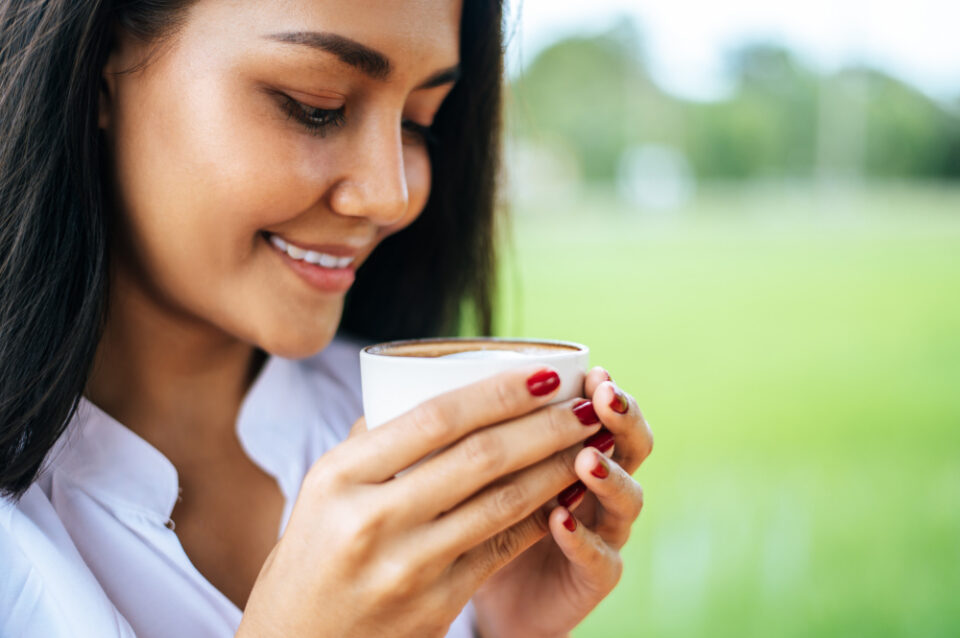There’s something magical about the first sip of coffee. That warm, bitter-sweet tingle sliding down your throat, unlocking the mind from its groggy grip. It’s less a drink, more a ritual—part alarm clock, part therapy, part quiet moment before the chaos begins.
In Bangalore, coffee is a culture, a companion, a ritual woven into our daily fabric. The sound of the filter dripping decoction into steel tumblers is more than routine; it’s a kind of music that heralds the start of the day. Coffee is nostalgia and ambition, all in one.
As an Ayurvedic doctor, people often expect me to frown upon coffee. And truth be told, I once did. In my early years of practice, I quickly cautioned against using caffeine. But time and patience have taught me that real life is brewed in shades of grey, not black and white.
The most asked question in my consultation room, right after “Can I eat bananas if I have a sinus?” is, “Doctor, is coffee good or bad?” And like all great Ayurvedic answers, mine begins with: “It depends.”
There was Meenakshi, a 32-year-old software engineer who charged into my clinic with a turmeric latte in one hand and a Kindle in the other. “Doctor, I’m doing intermittent fasting and keto. And I drink three cups of black coffee before noon.” Her skin was dull, her periods erratic, and her energy crashed by afternoon. She had become a laboratory for internet wellness trends.
I asked her to reduce her coffee intake, incorporate ghee into her meals, and sip warm jeera-dhaniya-saunf water in the mornings and evenings. Two weeks later, she looked brighter and slept better. We sometimes forget that our bodies are not algorithms but living, breathing systems rooted in rhythm.
From the Ayurvedic perspective, coffee is hot (ushna), bitter (tikta), and drying (rooksha). It stimulates Vata and Pitta, which means it’s energising but potentially destabilising. For someone sluggish or Kapha-dominant, coffee may be beneficial. But for the anxious, fiery, quick-tempered Pitta-Vata types, it’s a spark on dry leaves.
Another young advertising executive patient said, “Coffee makes me sharp, sir—but lately, it’s making me short-tempered too!” Classic Pitta overload. We swapped her third cup for Brahmi tea, and her emotional thermostat cooled significantly.
Then came the influencer with a cold brew in hand. “Doctor, I follow bulletproof coffee with MCT oil and ghee every morning.” Her liver tests, however, were not trending well. “I feel bloated, but everyone says it’s healthy!” she protested. “Everyone” had 1.2 million followers but zero clinical experience. We prescribed her warm herbal infusions instead, and her body slowly returned to balance.
It’s a strange time to practice Ayurveda. Instagram tells people how to biohack their bodies, often with imported trends and poorly translated science. I usually feel like a slow-cooking traditional chef in a world of microwave meals. But when patients return—less bloated, more rested, calmer—I know tradition still has its place.
Studies show that coffee enhances memory. Johns Hopkins found that a single cup can sharpen memory for a full day by stimulating the hippocampus. Research also suggests that coffee consumed before exercise can reduce muscle soreness by 48% and enhance endurance. That’s Yogavahi in action— a substance that enhances the properties of other actions or therapies.
For migraine sufferers, consuming 1–2 cups of coffee may help reduce the frequency of migraines. But beyond that, it backfires. That’s the Ayurveda principle of Samyak versus Atiyoga—the correct dose versus overuse.
Caffeine also opens up airways, mimicking asthma drugs like theophylline. In Ayurveda, herbs such as Vasa and Tulsi also have this effect. Women who drink over three cups of coffee daily may lower their skin cancer risk, thanks to coffee’s antioxidants. But drinking coffee too hot? That’s linked to oesophageal cancer risk. The answer, again, is in the balance.
Coffee affects digestion, too. Taken on an empty stomach, it can irritate the gut and aggravate Vata. And if consumed with meals, it interferes with calcium absorption—an example of Viruddha Ahara, the Ayurvedic idea of incompatible combinations. The ideal? A warm cup after breakfast is fine—skip it after 4 p.m., or it might mess with your sleep.
In my clinic, I keep it simple and practical. First, understand your body type. Add a pinch of cinnamon to your coffee to help balance blood sugar. Skip coffee after lunch, and don’t drink it with heavy meals. Avoid cold coffee on a chilly day—it can upset your system, especially if you’re Vata-prone. And always drink enough water—coffee can dry you out.
There are always stories that stay with you. One was a young groom-to-be who said, “Doctor, coffee is my only friend. I need five cups daily!” His wedding was in two weeks. I gave him Ashwagandha, and gradually reduced his intake. A month later, he sent me sweets with a note: “I married her. And yes, I’m down to two cups.”
Then there was a teenage girl, bright and hardworking, but breaking out with acne and battling constipation. “But I only have salads and cold coffee,” she said. That’s when I told her, “Maybe your body doesn’t want a trend. Maybe it wants warmth.” We brought traditional food, added ajwain tea, and kept a morning cup of coffee. Her cycles normalised. Her smile returned.
One of my favourite patients is a retired army officer who starts his day with two small cups of filter coffee—one at sunrise, one after his walk. No gadgets, no guilt. He sits by the window, watching the morning unfold, sipping slowly. No acidity, no anxiety—just calm clarity. That, to me, is balance in action.
Coffee is like fire. In the right amount, it awakens. In excess, it burns. Depending on how you hold the cup, it can be a blessing or a burden. Like many things in life, it’s not about abstinence—it’s about awareness.
Full cup. Empty self. It’s time to think about the refill.

